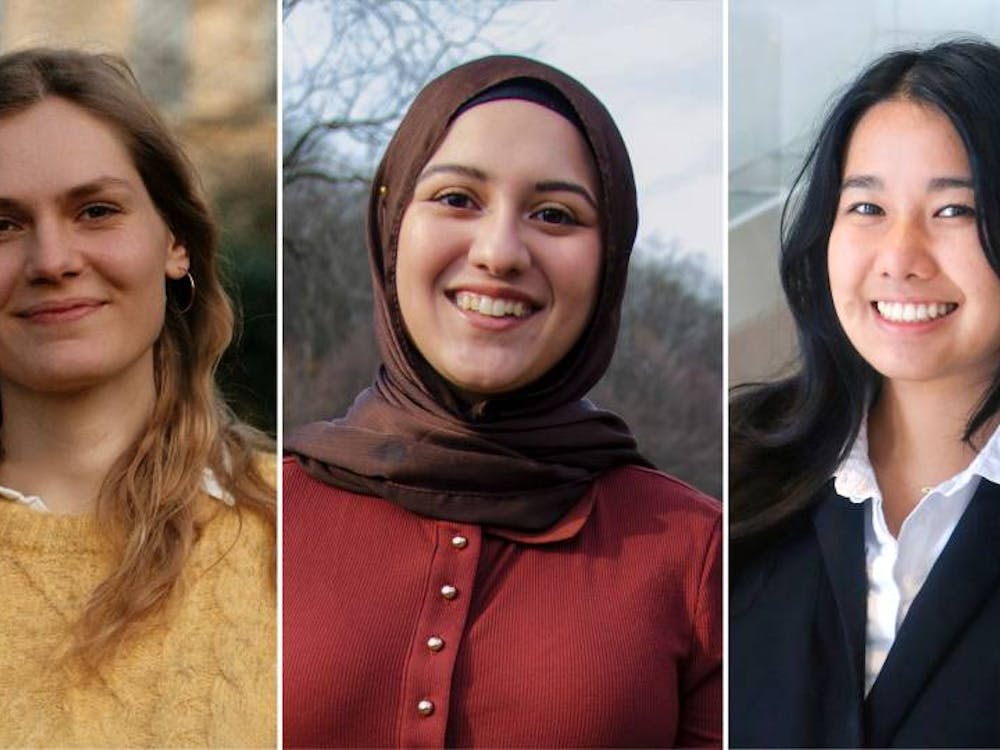"I'm a Jamaican." When I spent last summer at Duke, the first replies to that statement ranged from, "Do they speak English?" to more enlightened questions such as, "Do you have any weed?" (I don't, by the way.) So, you would think that, for someone who has spent her life correcting the stereotypes placed upon her by an ivory-towered world, I would know better than to reduce people — strangers especially — to stereotypical packages, Rastafarian stamped and sealed. And that's exactly what Princeton's been about for me so far.
I spent the first part of this summer in southern Africa. Africa. My first thoughts were easy — too easy. Desert. Jungle. Tribes. War. Naked people. Slavery. I decided to stereotype an entire continent based on some Hollywood interpretation, a stereotype that could not have been further from the reality of Botswana. I lived for a month in the fastest-growing economy in the world — a place where people are more likely to wear Armani suits than grass skirts, and prefer cell phones to Zulu spears, as they drive in their BMWs on the brand new streets.
In the middle of the desert, a society exists that is more advanced than those in most "developed" countries. A country where children don't murder each other, where a boy does not get caught in the middle of a political ego contest and where morality and religion aren't punchlines for a stand-up comedian. So continue to do as I did and believe that all Africa is one homogenous population that has not advanced in 300 years. Go ahead. It is nothing more than the white thieves — who stole the soul of half that continent and destroyed the spirit of the other half — believed. We are different from them — right?
In any case, despite all the lessons I supposedly learned this summer, I returned only slightly less ignorant than when I had left. I came to Princeton with expectations. Doesn't everyone? I had, rather smugly — I am a Princetonian after all — relegated every Princetonian to one of several distinct groups.
There were the jocks and the cheerleaders, winging their way through four years taking Intro to the Theory and Practice of Rock Climbing 102. The preppies, strolling along the Princeton lawns donated by their father's grandfather, in their clothes out of a J. Crew catalogue. Oh yeah, and there were the smart kids. The ones who actually raise their hands when asked if anyone here has invented a computer, answering "yes" in one of their three languages, discussing philosophy as they walk to the E-Quad for the third of their six classes.
But, the one thing I learned about Princeton is that, no matter how hard you try, you can't fit people into neatly labeled "All Jamaicans are Rastafarian" boxes.
Exhibit A — a conversation with one of my hallmates:
Me: Hey, I saw you're from California. (Blonde cheerleader, probably can't add two and two. Parents were on the U.S. News voting committee.)

Her: Yeah, and you're Jamaican, right. (Uh huh, I know what she's thinking.)
Me: Are you A.B. or B.S.E.? (Obviously she's A.B. English probably — no, women's studies.)
Her: B.S.E., aerospace engineering. (She's probably wondering if I've ever seen a plane.)
Me: Oh, well, I have to go. Working at the dining hall. (She's probably never even seen a mop).

Her: Oh, at the grad school? I just came from there. I used to work in the cafeteria at school, so it's like being at home again.
The cheerleader from Dallas is an engineering major, the athlete from Tennessee is trilingual and the preppy-looking freshman lived in the projects. My roommate is a bilingual artistic chemistry major, my hallmate is a philosophical computing wiz and two of my friends are engineers on the crew team. And I know too many Middle Easterners to generalize them anymore. All the stereotypes are destroyed leaving only one lasting stereotype in its place. We all are Princetonians, with all that implies, for better and for worse.
Michelle Sharpe is from Bridgeport, Jamaica.
'A Glimpse Within' is a weekly column in which we ask members of the Princeton community to share personal experiences. The 'Prince' welcomes submissions of about 650 words to The Newsroom.







